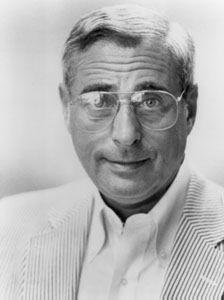Fred Silverman Death
Fred passed away on January 30, 2020 at the age of 82 in Los Angeles, California, USA. Fred's cause of death was cancer.
When did Fred Silverman die?
January 30, 2020How did Fred Silverman die? What was the cause of death?
CancerHow old was Fred Silverman when died?
82Where did Fred Silverman die? What was the location of death?
Los Angeles, California, USA
Fred Silverman Birthday and Date of Death
Fred Silverman was born on September 13, 1937 and died on January 30, 2020. Fred was 82 years old at the time of death.
Birthday: September 13, 1937
Date of Death: January 30, 2020
Age at Death: 82
Fred Silverman - Biography
Fred Silverman (born September 13, 1937) is an American television executive and producer. He worked as an executive at all of the Big Three television networks, and was responsible for bringing to television such programs as the series Scooby-Doo (1969–present), All in the Family (1971–1979), The Waltons (1972–1981), and Charlie's Angels (1976–1981), as well as the miniseries Rich Man, Poor Man (1976), Roots (1977) and Shōgun (1980).
Silverman was named president of ABC Entertainment in 1975, putting him in the awkward position of saving Happy Days, the very show that Good Times had brought to the brink of cancellation. Silverman succeeded in bringing Happy Days to the top of the ratings and generating a hit spin-off from that show, Laverne & Shirley.
Although Silverman's tenure at ABC was very successful, he left to become President and CEO of NBC in 1978. In stark contrast with his tenures at CBS and ABC, his three-year tenure at the network proved to be a difficult period, marked by several high-profile failures such as the sitcom Hello, Larry, the variety shows The Big Show and Pink Lady, the drama Supertrain (which also was, at the time, the most expensive TV series produced; its high production costs and poor ratings nearly bankrupted NBC), and the Jean Doumanian era of Saturday Night Live. (Silverman hired Doumanian after Al Franken, the planned successor for outgoing Lorne Michaels, castigated Silverman's failures on-air in a way that Silverman took very personally.
Despite these failures, there were high points in Silverman's tenure at NBC, including the launch of the critically lauded Hill Street Blues (1981), the epic mini-series Shōgun, and The David Letterman Show (daytime, 1980), which would lead to Letterman's successful Late Night with David Letterman in 1982. Silverman had Letterman in a holding deal after the morning show which kept the unemployed Letterman from going to another network (NBC gave Letterman a $20,000 per week [$1,000,000 for a year] to sit out a year). However, Silverman nearly lost his then-current late night host, market leader Johnny Carson, after Carson sued NBC in a contract dispute; the case was settled out of court and Carson remained with NBC in exchange for the rights to his show and a reduction in time on air.








